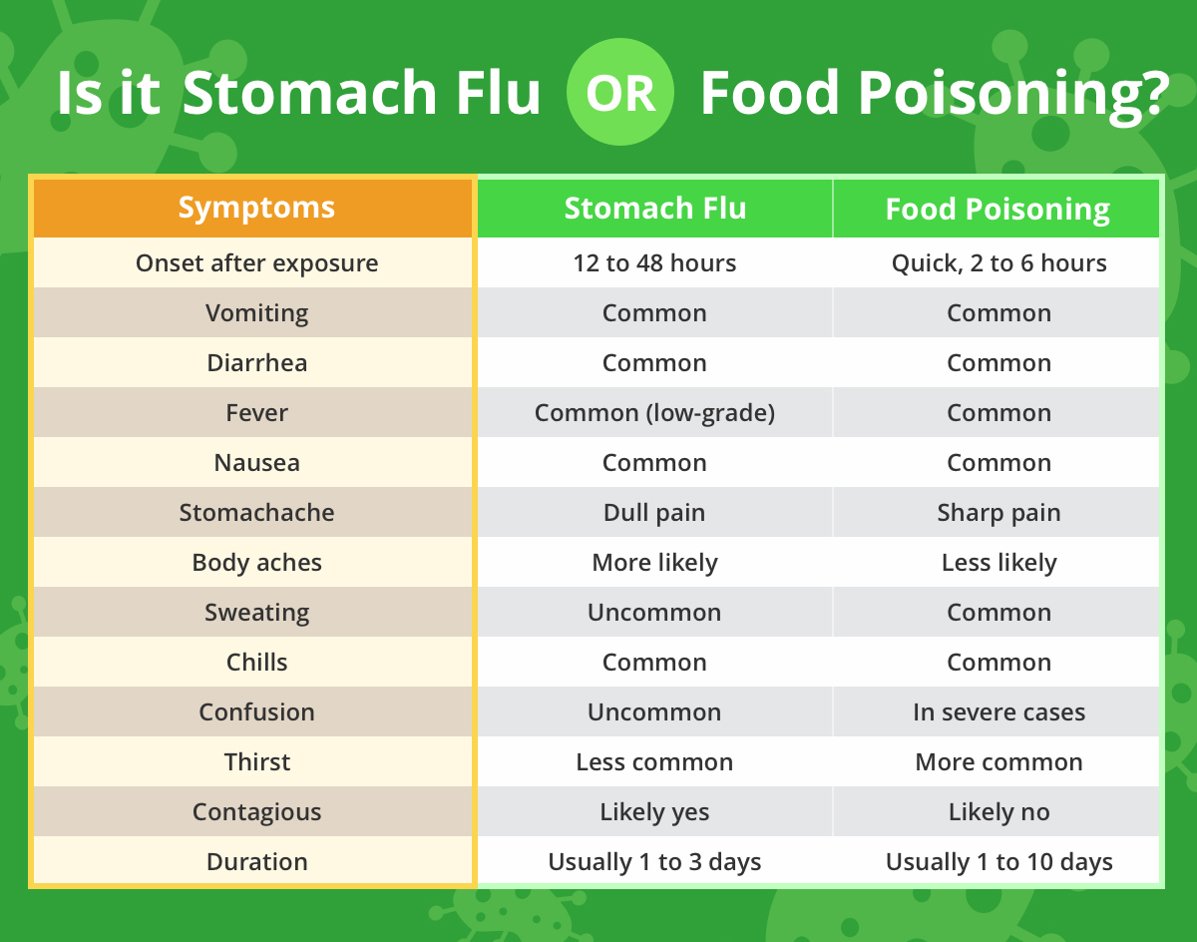What’s the Difference Between Stomach Flu and Food Poisoning?
One minute you’re feeling fine and the next minute your stomach starts to feel uneasy. We’ve all experienced an uncomfortable sudden onset of nausea, which can lead you to think: Is it something I ate or is this a stomach bug? While food poisoning and stomach flu are similar illnesses, there are a few differences. Here’s what to look for to determine which condition you may have.
Food poisoning and foodborne illnesses
The medical term for food poisoning is foodborne illness, which makes sense because you’re not being poisoned by food, but rather you’re affected by germs (bacteria, viruses or parasites) that are living on the food. You can contract food poisoning from food that is mishandled or cooked improperly. This may happen when a meal is left out on the table for too long, not refrigerated properly or handled by someone who touched an unclean surface or didn’t wash their hands. Eating certain raw or uncooked foods can also lead to food poisoning.
Some examples include:
- Poultry and raw meat
- Raw eggs
- Unwashed fruits or vegetables
- Unpasteurized beverages (like milk)
- Raw shellfish
Stomach flu and stomach viruses
The medical term for stomach flu is viral gastroenteritis, though you may hear people refer to it as a stomach bug or stomach virus as it has no connection to influenza (the flu). While food poisoning is caused by coming into contact with mishandled food, stomach viruses are typically caused by coming into contact with someone who is already infected. You can get a stomach virus if you share food or utensils with an individual who has the illness or through contaminated surfaces they have touched. Stomach flu can be caused by many viruses, the most common being norovirus and rotavirus.
It’s important to know that stomach viruses can spread very quickly from person to person. If you think you have a stomach bug, try to stay home, practice good hygiene and disinfect shared surfaces so you don’t pass the illness onto others. If you need care from home, you can use your Amwell app to have a quick video visit and get expert medical advice.
What’s the difference?
Stomach flu and food poisoning are similar conditions, as initial symptoms can include fever and diarrhea. A key difference between a stomach virus and food poisoning is how the symptoms hit you. Stomach virus symptoms start a few days after exposure to the virus and typically only last a couple of days, though they can last longer. Symptoms of food poisoning, however, flare up much quicker, usually within two to six hours of eating contaminated food and they may last between one and 10 days.

Care and treatment
If you’re dealing with either of these illnesses and especially if you’re experiencing diarrhea or vomiting, it’s important that you drink plenty of water to stay hydrated. The BRAT diet — bananas, rice, applesauce, and toast — can be your go-to diet for an uneasy stomach since these foods are easy to digest. They also contain a lot of carbohydrates to give you energy and replenish lost nutrients.
Whether you have food poisoning or stomach flu, you’re going to get better on your own thanks to your body’s immune system. However, if your symptoms are severe, a doctor may prescribe antibiotics for bacteria-caused cases of food poisoning or stomach flu. This treatment will not work for viruses, which antibiotics are unable to fight. The best medicine for virus-caused stomach conditions is a lot of rest, hydration and food that is easy on your stomach.
See a doctor if:
- You have a fever of 102°F or higher
- You are dehydrated. Signs of dehydration include thirst, infrequent or no urination, dry skin, high fever, listlessness or irritability.
- Your stool appears black or bloody
Read about other signs and symptoms that would require a doctor’s opinion here.
Whether you’re dealing with a stomach virus or food poisoning, get adequate rest so you can recover faster and feel better sooner. If you would like a doctor’s advice at any time of day tap into Amwell for a quick video visit and expert care.